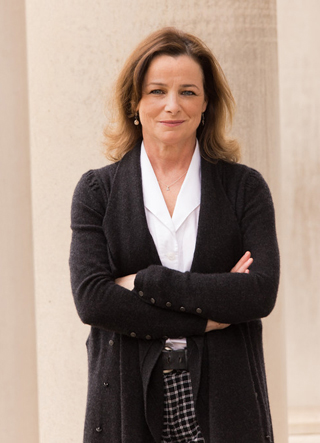Enhancing Leadership for Nonprofits
ALBANY, N.Y. (December 16, 2016) — Whether it’s meeting demand for services, stanching out-of-control spending or developing a strategic plan, one the most critical issues facing the nonprofit sector is leadership. And a key element in providing effective leadership to help nonprofits navigate these challenges, according to Yvonne Harrison, assistant professor of Public Affairs & Policy, is the organizational governing board. |
|
Yvonne Harrison, an expert in the study of leadership and performance within nonprofit organizations. |
“Very often the board is overlooked as a source of leadership,” said Harrison, who has spent more than a decade exploring the leadership role and performance challenges of nonprofit boards of directors.
“When it comes to improving leadership at the governance level in nonprofit organizations, board members have many ideas about what is working and what might be done better,” she said. “One of the best ways to tap their potential to contribute is to have them complete a well designed and tested questionnaire covering all facets of board operations.”
In order to address current gaps in board leadership and technical capacity and also to conduct longitudinal research into the problem, Harrison and her colleague Vic Murray of the University of Victoria created Board Check-Up, a one-of-a-kind online tool for nonprofit board members and those who connect to the board on a regular basis to assess board performance. When Board Check-Up’s results are summarized and analyzed, they provide both an excellent basis for learning and board development and a unique database that Harrison mines to produce scholarship.
Harrison and Murray’s research, which has been published in the Nonprofit and Voluntary Sector Quarterly, is also supported by a SUNY Innovative Instructional Technology Grant (IITG) and the library-funded initiative Open SUNY Textbook, as well as a series of on demand Massive Open Online Courses (MOOCs). The MOOCs were developed to increase access to nonprofit leadership education and extend the two colleagues’ research.
To date, Guidelines for Improving the Effectiveness of Boards of Directors of Nonprofit Organizations has been downloaded 7,965 times and their MOOC Specialization, Improving Leadership and Governance in Nonprofit Organizations, has reached more than 40,000 people in almost every country in the world.
In 2016, Harrison was recognized by the Center for Economic Growth with a “Technology Trailblazer” award nomination for the economic impact of her scholarship on the nonprofit sector. She also received a UAlbany President’s Award for Exemplary Public Engagement in 2015 along with members of the Steering Committee for the Emerging Issues in the Nonprofit Sector Seminar Series. The Institute is a collaboration of UAlbany’s schools of Social Welfare, Public Health and Business, along with Rockefeller College and Albany Law School, and has a goal of advancing and exploring issues confronting the nonprofit sector.
On September 23 of this year, UAlbany held a “Forum to Imagine the Role of the University in the Nonprofit Community” to launch a new Interdisciplinary Institute for Nonprofit Leadership and Community Development. The forum featured University and nonprofit community thought leaders, including Harrison.
Currently, she and a committee are hard at work planning a retreat whose goal is to produce a strategic plan for the new Institute that will become a guide within the University and community for making and implementing policy decisions that meet the needs of the nonprofit sector and advance the campus’s goal and priorities for community engagement.
![]() For more news, subscribe to UAlbany's RSS headline feeds
For more news, subscribe to UAlbany's RSS headline feeds
A comprehensive public research university, the University at Albany-SUNY offers more than 120 undergraduate majors and minors and 125 master's, doctoral and graduate certificate programs. UAlbany is a leader among all New York State colleges and universities in such diverse fields as atmospheric and environmental sciences, business, education, public health,health sciences, criminal justice, emergency preparedness, engineering and applied sciences, informatics, public administration, social welfare and sociology, taught by an extensive roster of faculty experts. It also offers expanded academic and research opportunities for students through an affiliation with Albany Law School. With a curriculum enhanced by 600 study-abroad opportunities, UAlbany launches great careers.


